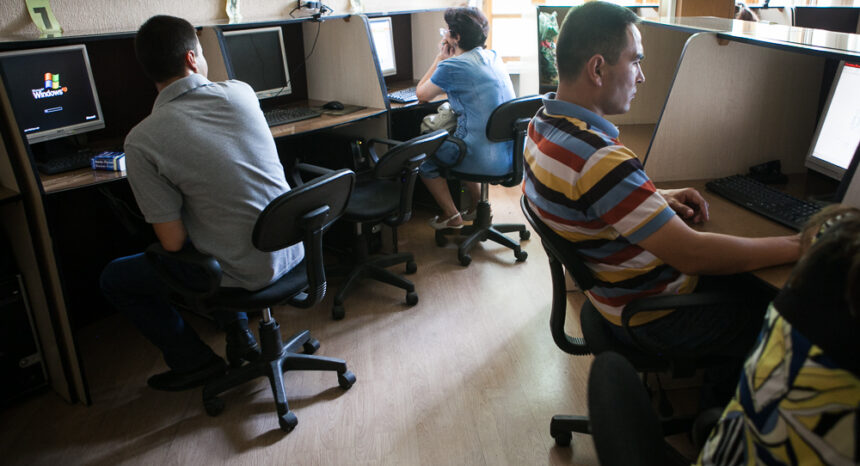Countries with greater press freedoms tend to be less corrupt, researchers have found. A free press may even help fight corruption.
Broadly speaking, corruption is the misuse of political power for personal enrichment. It tends to hurt economic growth and boost both inequality and poverty.
A few years ago, when physical newspapers still held sway, a place like Azerbaijan (a hereditary post-Soviet republic with a dismal corruption record) would harass journalists and limit supplies of newsprint.
Though Azerbaijan still jails critical journalists, it has had less success censoring digital content and social media. Sure, the authorities can try to block access, but people are pretty savvy when it comes to sidestepping internet barricades. With the spread of social media, scholars are asking if it, like the press, has a corruption-fighting power, too.
An academic study worth reading: “Does Social Media Reduce Corruption?” in Information Economics and Policy, 2017.
Study summary: Chandan Kumar Jha of Le Moyne College and Sudipta Sarangi of Virginia Tech ask “whether the increasing use of social media, particularly Facebook, is associated with lower levels of corruption.”
They use Facebook as a proxy for social media penetration in a given country. Of course, in some countries Facebook is not as popular as indigenous social media platforms. Sometimes Facebook is blocked, as in China (which would underscore the researchers’ point about freedom); sometimes, as in Russia, other platforms made inroads earlier. Jha and Sarangi hypothesize that Facebook may have usurped the function a free media played in the past by giving anyone with internet access a voice, a way to organize and protest, and a larger audience.
They look at data from more than 150 countries in the year 2012. To measure Facebook penetration, they use proprietary data from Quintly, a media analytics firm, on the usage rate in a country. For corruption – which is usually measured in terms of perceptions, or how individuals experience corruption in their daily lives – the authors use a World Bank survey to compare countries: the Control of Corruption Index. The CCI runs on a scale from -2.5 to 2.5, with a higher score meaning less corruption.
Key takeaways:
- A country with more Facebook usage tends to score lower on corruption rankings, suggesting that Facebook may reduce corruption.
- This relationship is greater in countries that score low on press freedom rankings (as determined by Freedom House, an American nonprofit). That is, countries with poor press freedom records benefit more from social media in their corruption fights.
- An 18.2 percent increase in Facebook penetration is associated with a 0.2-point improvement on the CCI corruption index. This would move “Bangladesh to the level of Ecuador, and Nigeria to the level of Honduras.”
- A 29 percent increase in the number of people with access to the internet is associated with a 0.4-point improvement on the corruption index.
- Jha and Sarangi warn that “greater access to information may actually increase the perception of corruption, even if corruption itself decreases.”
Helpful resources:
- The World Bank’s CCI data can be accessed here.
- Transparency International, a global watchdog, publishes the Corruption Perceptions Index, which differs slightly in its findings.
- About seven in 10 Americans use social media, according to a January 2017 report from the Pew Research Center, which also describes American social media habits.
- Hootsuite, the social-media-management platform, publishes data on global social media trends.
- The World Economic Forum has published Italian research on the most popular social network in each country.
Other research:
- A 2014 paper in World Development found e-government resources help combat corruption.
- A 2012 study in Information Economics and Policy analyzes how traditional media have adopted social media as distribution channels, noting that platforms like Facebook, by making it easy to share articles, may increase traditional newspapers’ readership.
- We reviewed this 2013 study on the relationship between economic growth and corruption.
- This 2000 study in The Journal of Public Economics is a classic on the root causes of corruption.


Expert Commentary